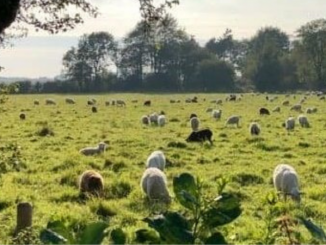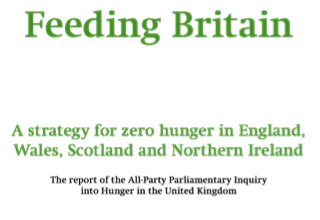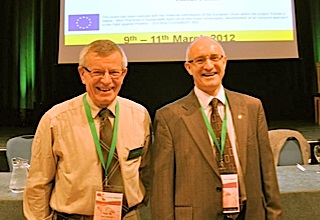African civil society are calling on the UK government to withhold the GBP 395 million that ends up in corporate hands but is labelled “development aid”. The fact that agribusiness is also finding ways of short circuiting civil society involvement in the process just adds to the urgency of the situation, African and European NGOs argue.
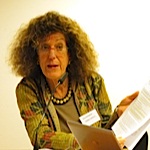
Small farmers already feed most of Africa, even allowing for a growing population, says Nora McKeon of Terra Nuova, opening a europAfrica conference in Brussels this week, attended by representatives from important African regional farmers’ networks. When the G8 spawned its corporate Trojan horse, the New Alliance for Food Security and Nutrition, “…DG Agri wanted to know what’s wrong with it!” she exclaims. The meeting had been convened to set the record straight.
Gisele Henriques of Catholic development agency CIDSE picks up the thread: “This risks being about market access for large corporates rather than developing and growing agriculture in Africa.” The New Alliance line-up is a roll call of corporate giants: Syngenta; Dupont; Cargill; Yara, to name but four. Civil society is relegated to the role of spectator.
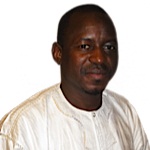
“Africa needs investment, but on our terms,” adds ROPPA representative Mamadou Goïta, who speaks for farmers across the continent. “That means investing in family farms, who are the majority players.” Even fragile countries can feed themselves most of the time, he explains, despite farming conditions that can be unforgiving at times.
“There is a need for agriculture to work at regional levels to ensure that everyone can eat. The Alliance wants to set aside traditional approaches and impose different technologies.” He cites the example of Burkina Faso, where land titles are being issued. To get credit, the land title will be used as guarantee: “once upon a time a farmer would have put up his bicycle as collateral, but not his future in farming.”
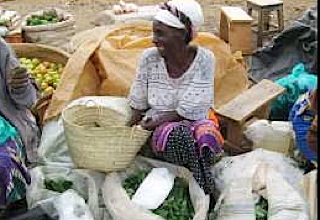
Goïta accuses the Alliance of having deliberately targeted such countries, plundering the genetic heritage of staple crops. Rice, for instance, is being grown with increasing quantities of imported chemical inputs – as well as for export, generating an economic pump action. In Côte d’Ivoire rice-growing contracts have generated a “haemorhage” in the local economy, which is undermined by production that leaves the local loop.
When the West African farmers’ network ROPPA investigated the pricing of imported fertilisers, it soon became clear that up to 73% of the price earned by the manufacturer was being repatriated as profit. Hollowing out the local economy puts other resources at risk.
“African earth, water and seeds are under threat,” Goïto warns, adding that the role of the states or the governments that represent them is in question. The role of private funds and capital in the Alliance business plan has set the tone: “You can’t sell off our seed heritage!” he exclaims.

“We need international advocacy,” observes Stephen Muchiri, chief executive of the Eastern Africa Farmers’ Federation, conscious that land deals are being done behind closed doors. “An area the size of Kenya has already been taken,” he adds, lamenting the weak land policies that prevail across the continent.
He cites Rwanda, where corporate pressure has led to a seven-year process of land registration that is almost complete. An industrial model of agriculture which clears forest and destroys the balance of ecosystems is one we cannot survive: “…we would all be destroyed [by it],” he warns. “Our farmers have been farming for the past 100 years, so there is no reason why not a further 100.”
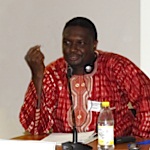
Patrice Abessolo Amougou, a representative of the central African farmers’ platform PROPAC explained that “…70% of our population are peasants. Any G8 money should go to existing sustainable farming. Peasants are already producing: they want to add value to what they produce.”
Gaëtan Vanloqueren is an agroecologist working under UN special rapporteur on the right to food, Olivier De Schutter. “The accent on trade has stiffened since 2008,” he observes, adding: “agroecology has also risen to the challenge, but we don’t have an alliance. Malawi was a good shop window for showing agroecology in practice. We know that it works, but we need to show more examples and the economic arguments need to be clearly presented.” On this point, the importing of foreign currency has impacts far beyond the usual extent of economic analysis and it weighs more heavily on the outcome than just an accounting exercise.
The G8 New Alliance is setting out a business plan rather than a political policy: “The G8 are aligning their development funds to a corporate agenda: governments are acting as brokers for corporate interests,” says Misereor researcher Ben Luig. “The line between the rule maker and the rule taker is very blurred.”
Collusion of this kind is helping to undermine the governance of food around the world. This means that the democratic UN Committee on World Food Security, where civil society does have a voice, it is not being heeded.
“Civil society should direct their energy towards the CFS and supporting Africa’s family farmers’ call for food sovereignty,” concluded Patrick Mulvany of europAfrica.



